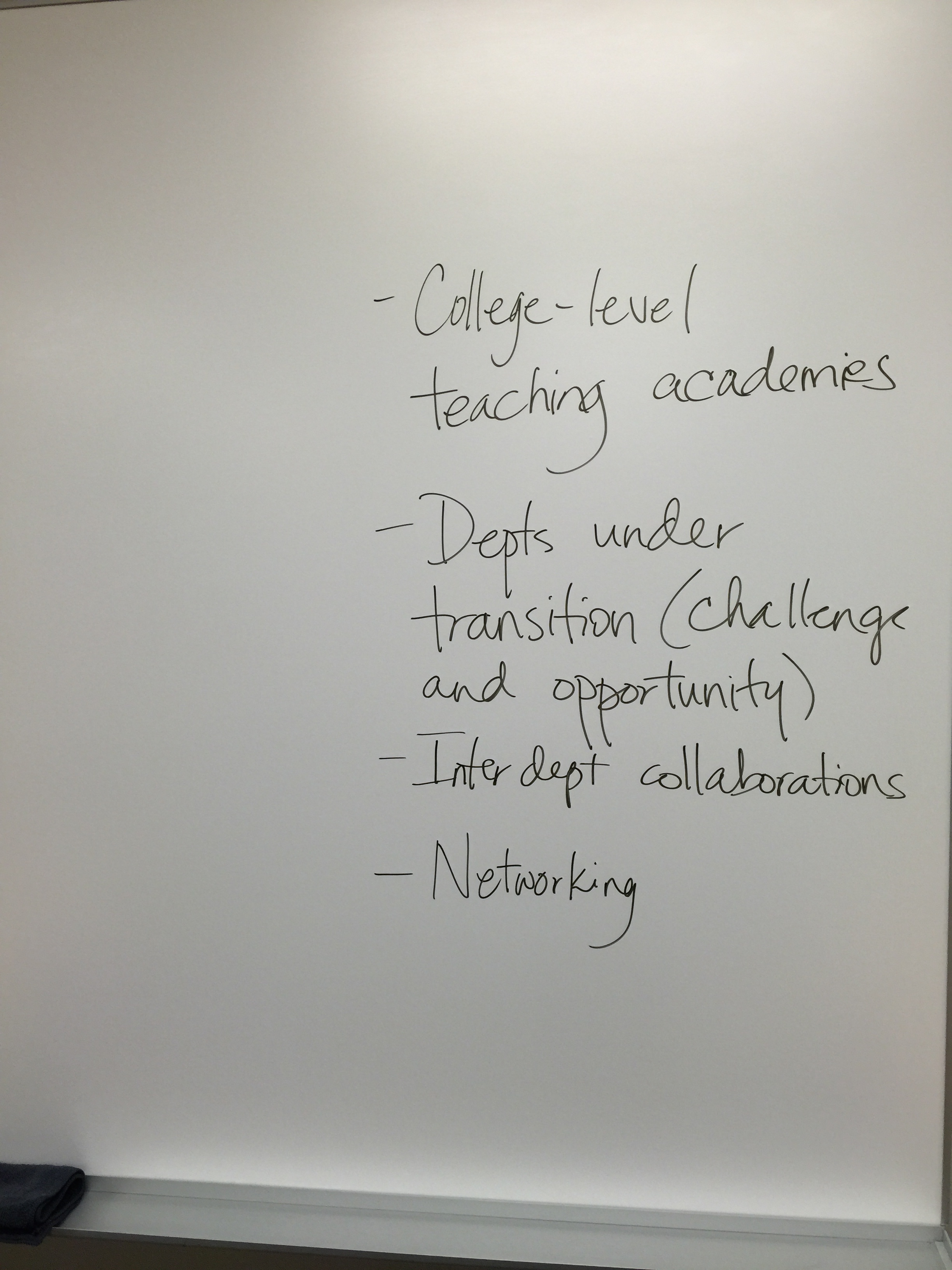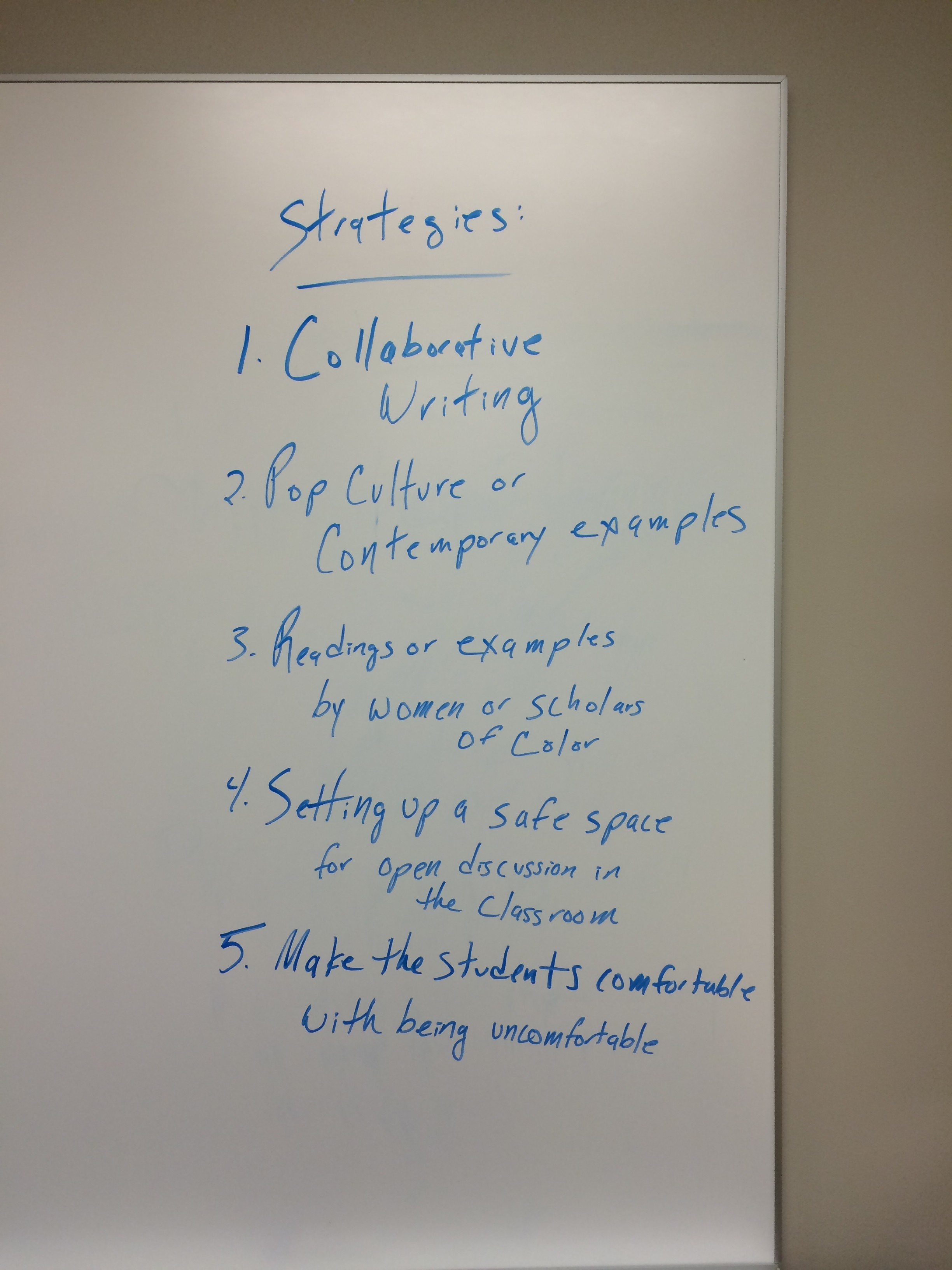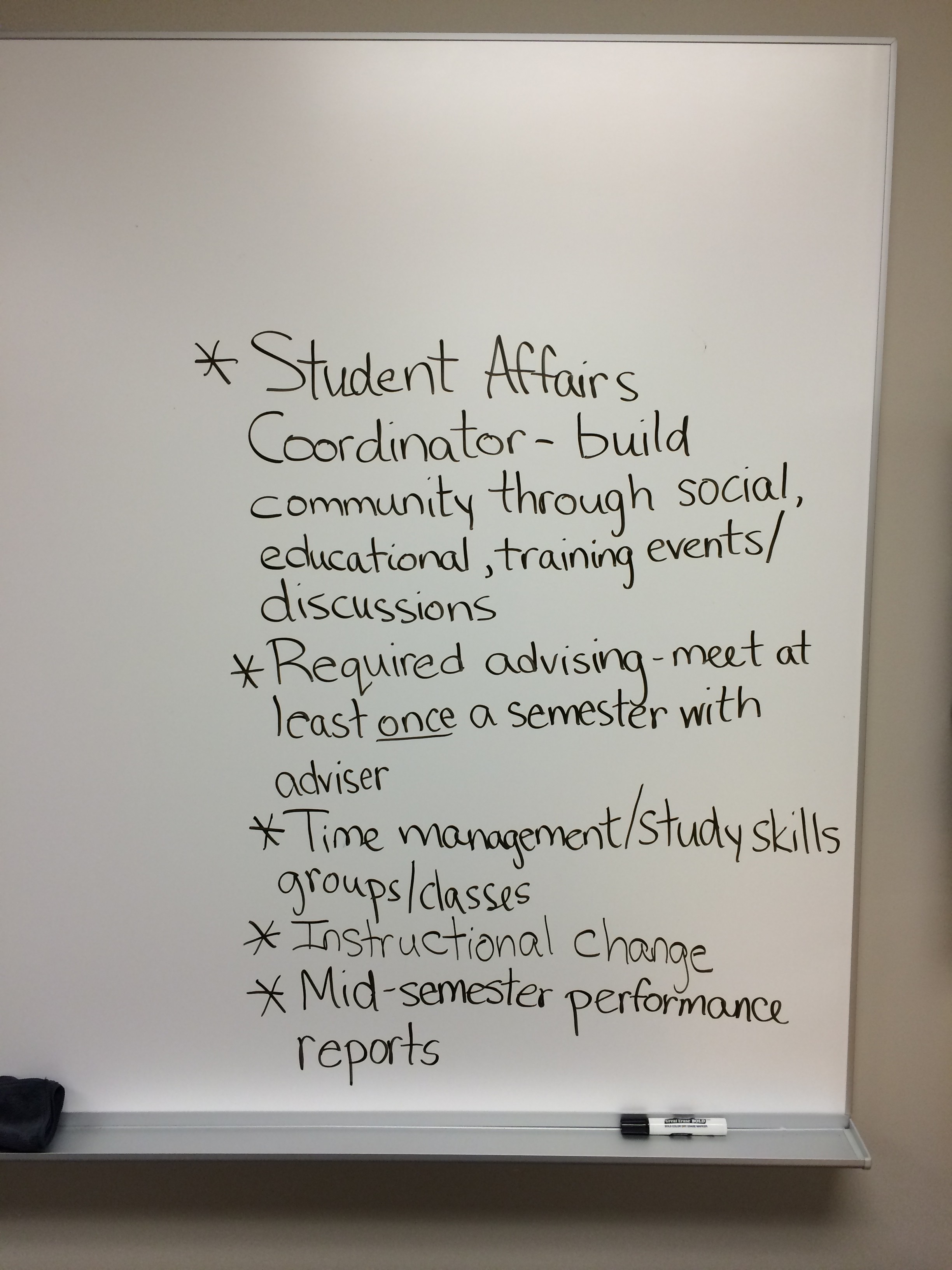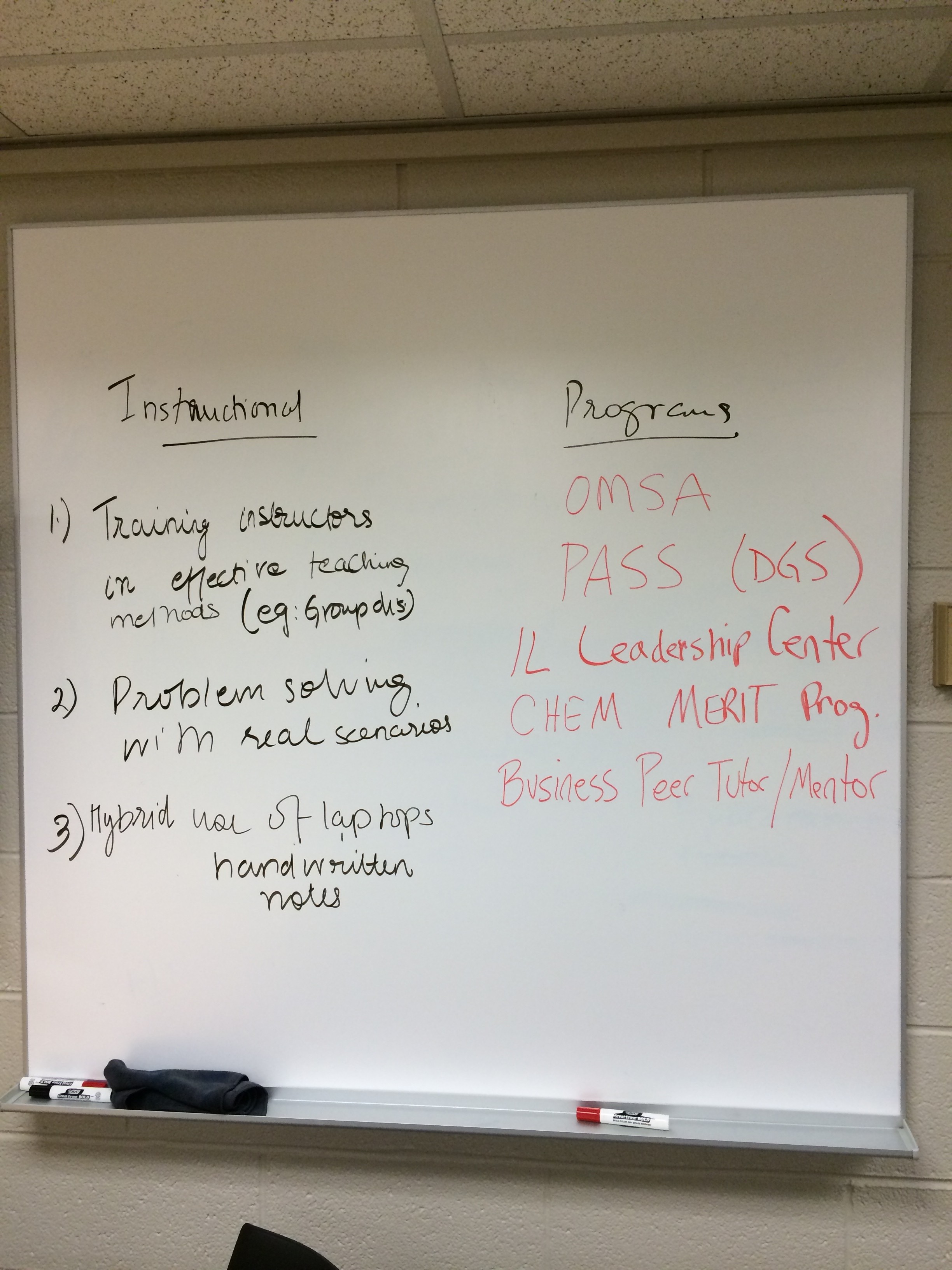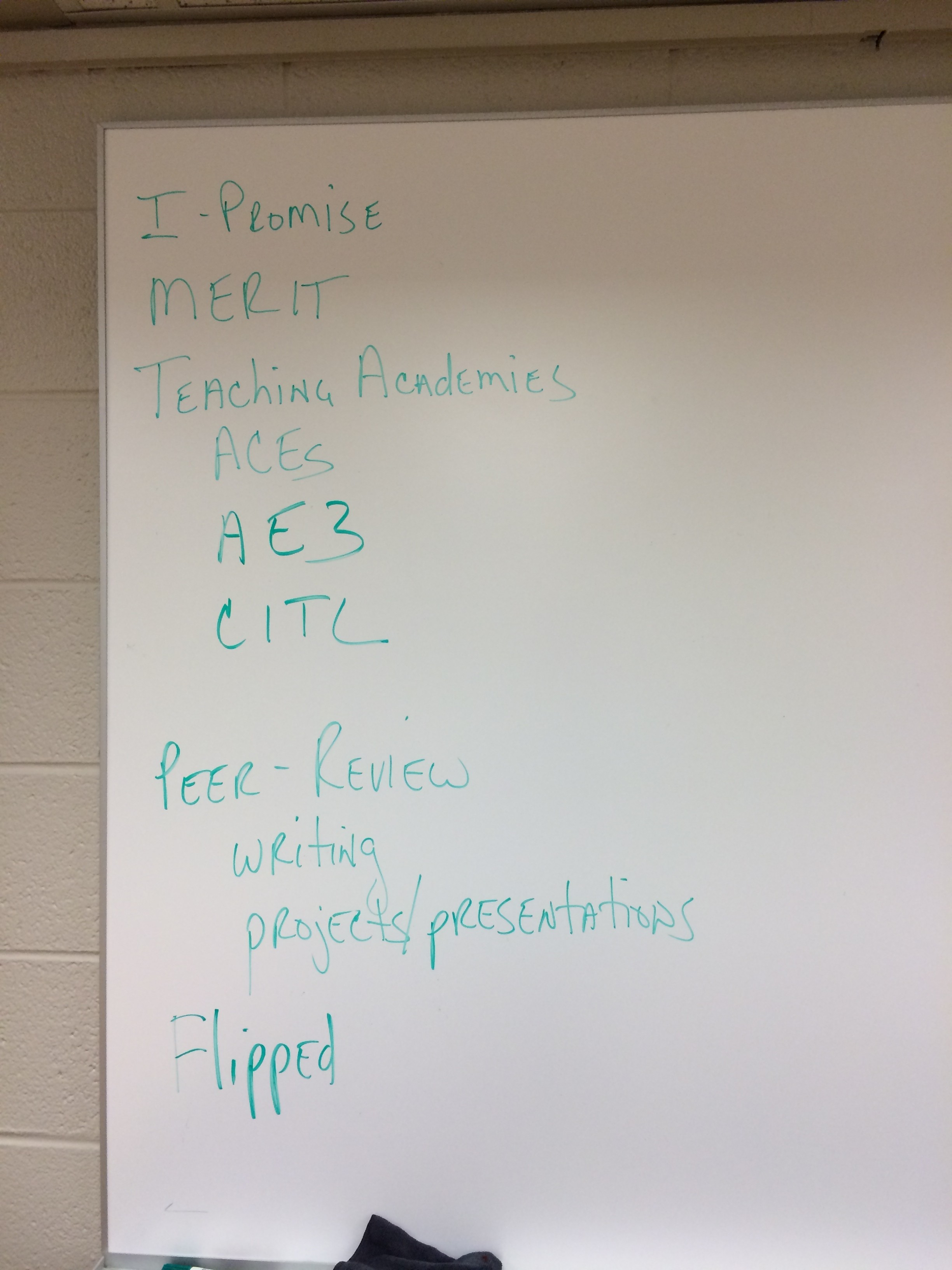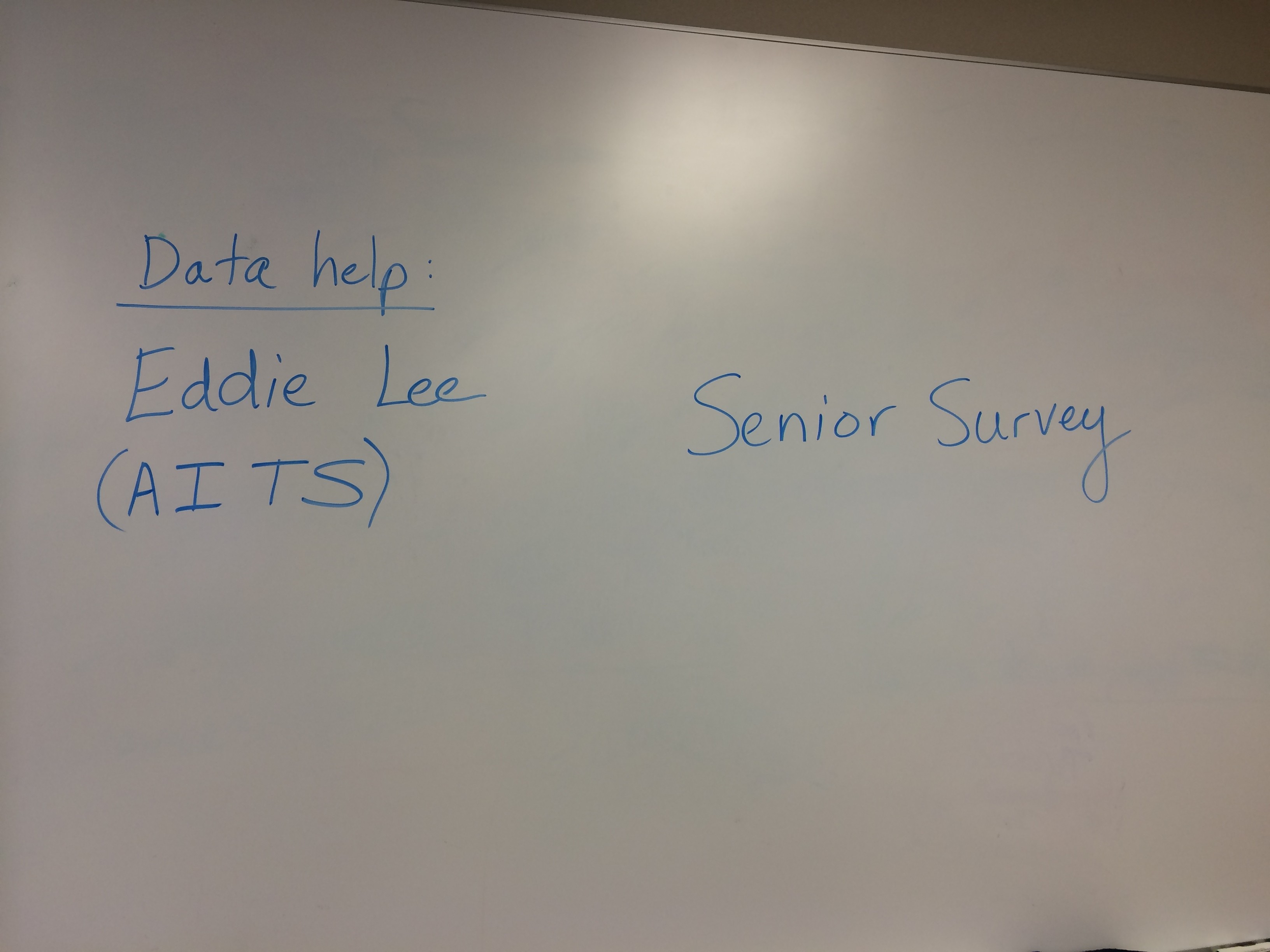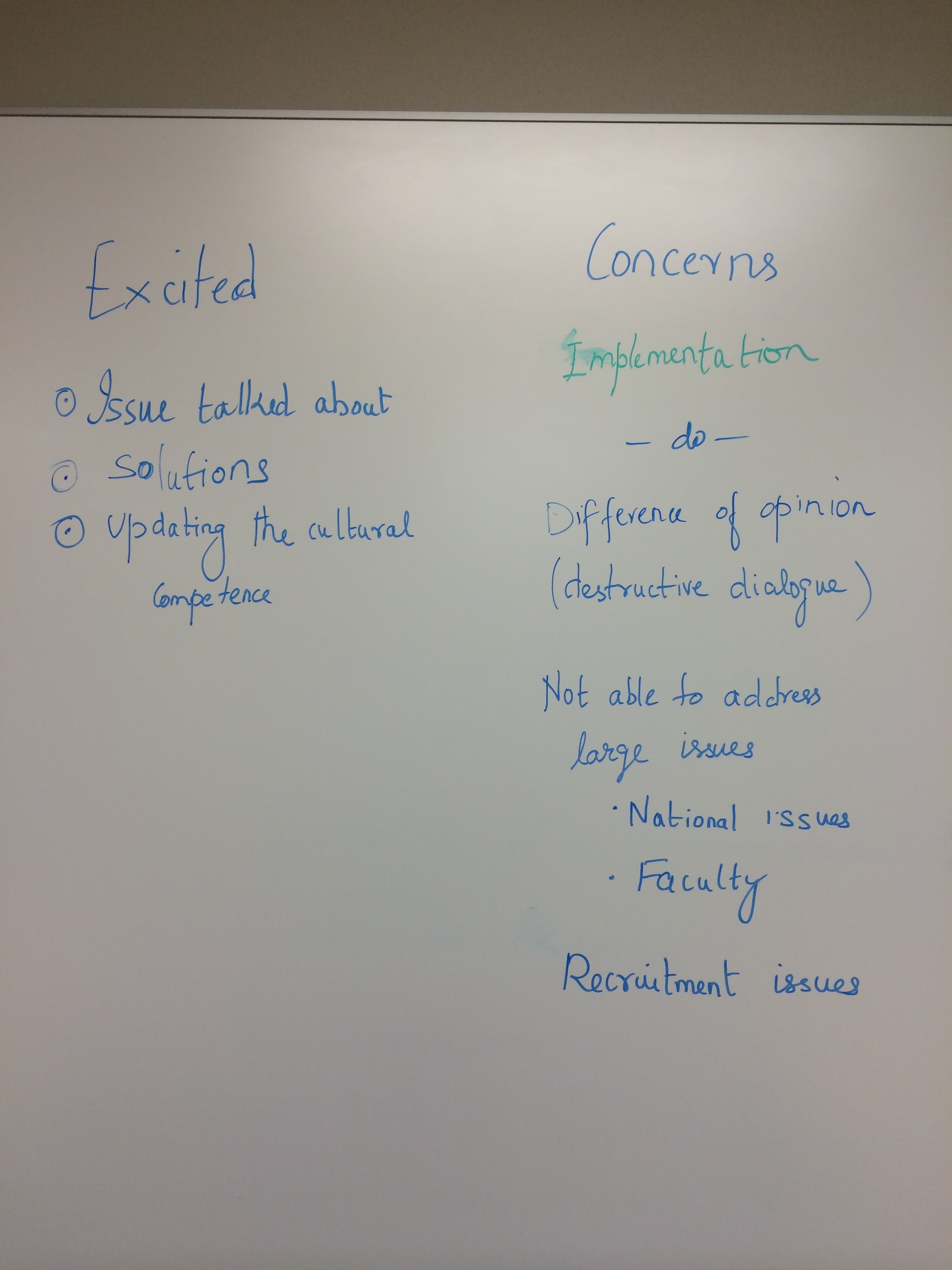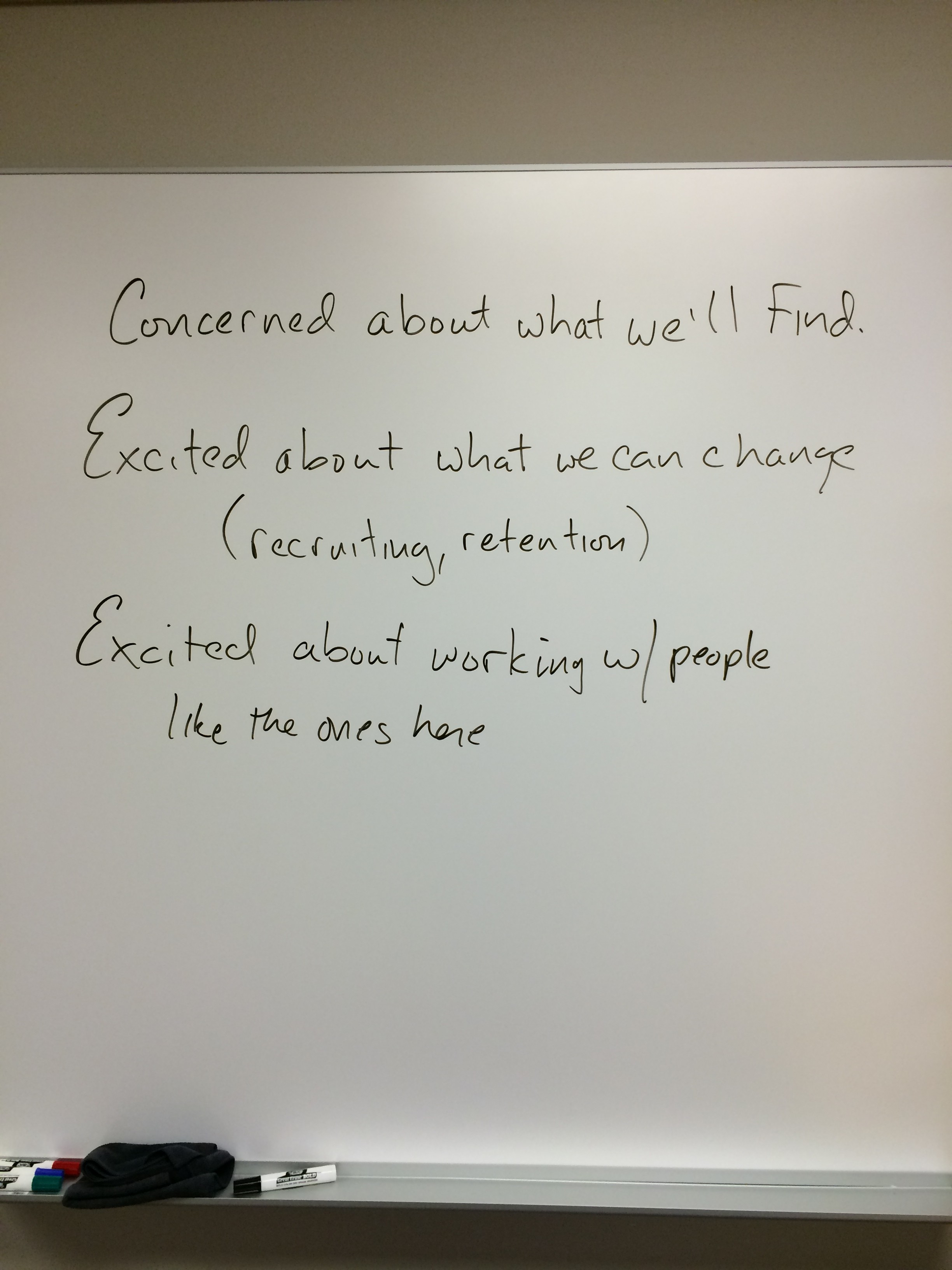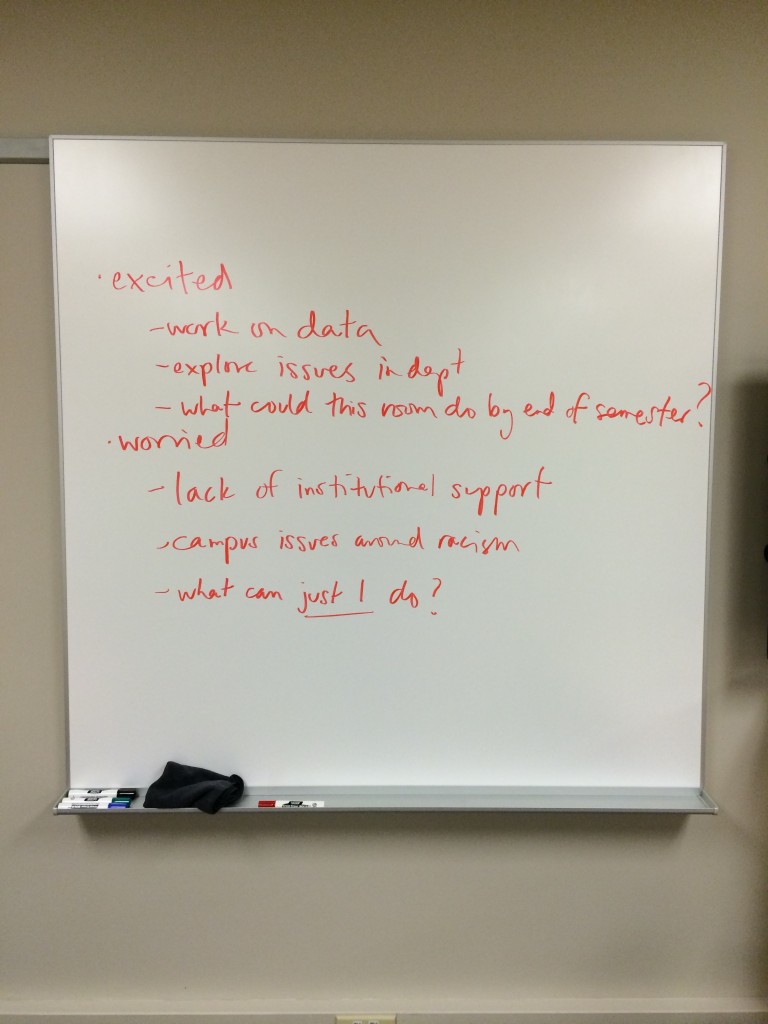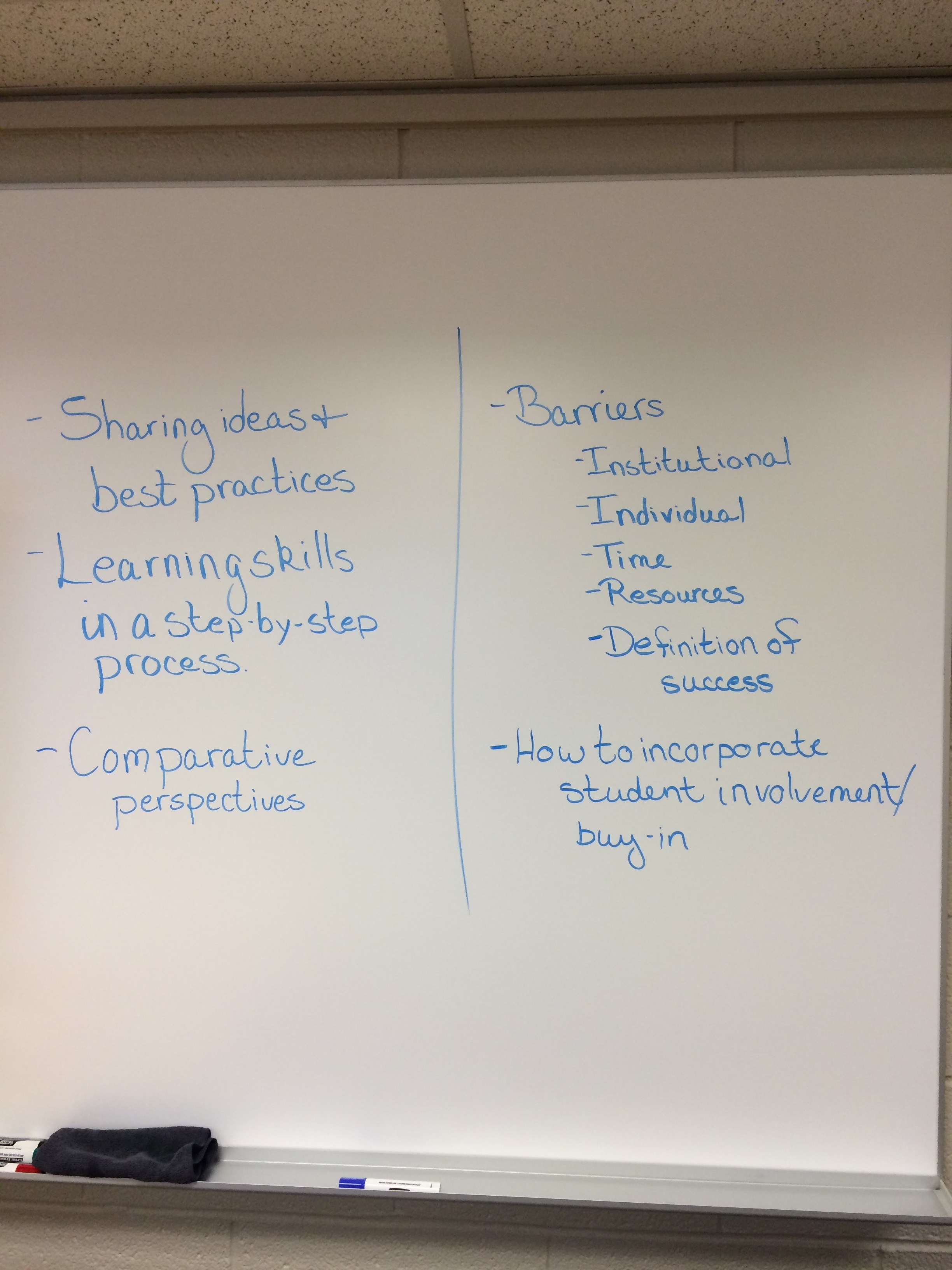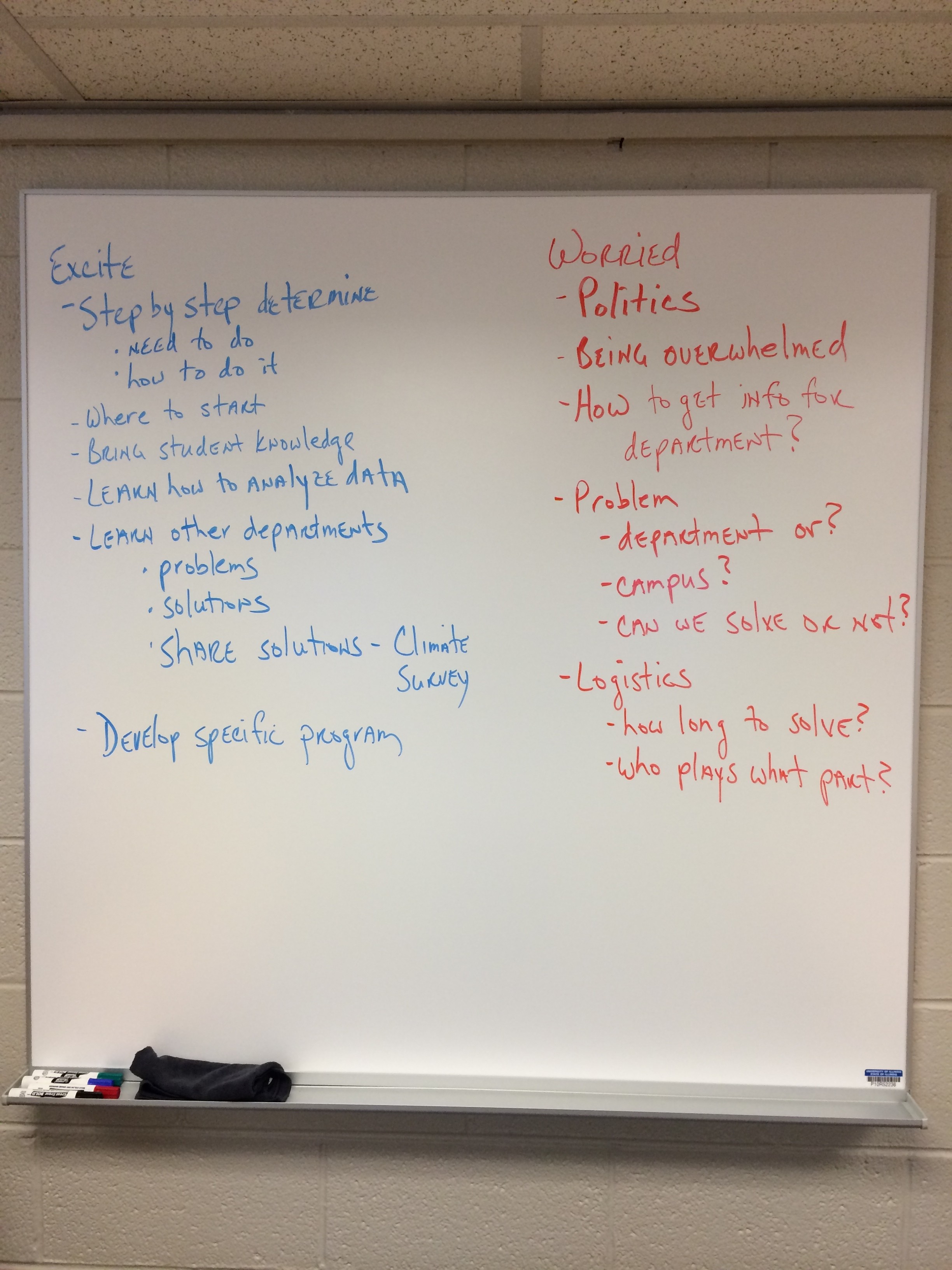May Workshop Summary
In our final workshop, each participant developed a plan-of-action for moving forward. This included identifying the issues, developing strategies, and gaining support. It was a good way to summarize and put together the various topics discussed throughout the workshop series and create some concrete ideas that can be implemented moving forward.
The power point slides are listed below, along with a supplemental handout.
May Workshop Slides
Guided Workshop Session Handout
April Workshop Summary
For the April workshop, we focused on the methodology of program or course evaluation and why it’s important to evaluate. The following concepts were discussed as critical to evaluation planning: evaluation purpose, targeted audiences and uses, evaluation questions, design methods, quality of program/course, and sharing of results. The MERIT/MIST Program was used as an example to explain how to plan an evaluation, although participants worked in groups to apply the evaluation concepts to their programs or courses.
The power point slides and handouts are listed below.
Evaluation Resources Handout
Evaluation Plan Handout
Evaluation Designs Handout
March Workshop Summary
In order to create a “critical mass” for our underrepresented students in our programs, recruiting is key. In this workshop, we discussed how this includes actively recruiting through letters, emails, multi-media (such as videos), and face-to-face meetings. Utilizing campus connections is also important – connections with advisors, instructors, RSOs, cultural houses, OMSA, university housing, etc.
Besides serving as public engagement with the community, outreach is also an effective tool for recruiting. We discussed how we can get involved at all levels – elementary, middle, and high schools. This includes off-campus and on-campus programs for students and establishing relationships with guidance counselors and teachers. Two guest speakers spoke about their programs and how faculty can get involved. Dr. Karl Radnitzer, Assistant Director for Student Life at University Laboratory High School, spoke about a summer and ongoing middle school program that engages underrepresented students in the community. Pilar Ramon-Pfeffer, Assistant Director of the Principal Scholars Program, spoke about their efforts with underrepresented and first-generation middle school and high school students in the Central Illinois area. Both programs invited participants to get involved.
The power point slides are listed below, along with the two recruiting videos (one for prospective students for the School of Chemical Sciences and one for the Merit Program).
March Workshop Slides
School of Chemical Sciences Video
Merit Program Informational Video
February Workshop Summary
While earning a degree from the University of Illinois can provide a lot of opportunities for students, the cost of attending is a significant financial burden to many, especially first generation and underrepresented students. Inadequate financial support can contribute to retention problems and poor academic performance. In this workshop, we focused on strategies to help students with financial assistance. One program highlighted was the Illinois Promise Program. Susan Gershenfeld, Director, spoke about the program, how students qualify, and how we can be involved.
In addition, we discussed strategies for obtaining funding for initiatives and programs that support underrepresented groups. Some of those strategies included securing funding from multiple levels: departmental, college, campus, national, and private funding. Workshop slides and pictures of our group activity are included below:
Illinois Promise slides
February Workshop Slides
January Workshop Summary
(There was no workshop in January.)
December Workshop Summary
In light of learning about some existing student support services on campus, seven panelists joined us for a discussion on how they serve students and contribute to improving retention and academic performance, particularly those students from underrepresented groups. The panel also provided ways in which the workshop participants can connect their students with these services and help support students overall. Faculty and advisors work with thousands of students, so using a collaborative effort with specialized services can help improve student experience and retention. Those that served on the panel discussion (along with their contact information) are listed below:
Dr. Wallace Southerland, Office of Minority Student Affairs
Dr. Michelle Cruz-Santiago, Office of Minority Student Affairs
Dr. Kim Collins, Division of Disability Resources & Educational Services
Assistant Dean Kimberly Brown, Access & Achievement Program
Leslie Morrow, Office of Inclusion & Intercultural Relations
Dynesha Mason Grissom, Counseling Center
Martin McFarlane, International Student and Scholar Services
Furthermore, the workshop power point slides and a Campus Services handout that can be used in course syllabi are included below.
December Workshop Slides
Campus_Services
November Workshop Summary
The November workshop primarily focused on instructional strategies to improve retention and academic performance among underrepresented groups. One first step to better instruction is to first understand the population of students in your classroom. This can be achieved by pulling university data and/or giving student surveys on the first day of class. By understanding your audience, you can design techniques, strategies, and curriculum to help students achieve success. Several of these strategies were presented for various formats including large lecture, smaller TA-led discussion sections, and online components. The importance of mentoring was also stressed. Various methods were discussed such as one-on-one mentoring, TA mentoring, and peer mentoring. The Merit Program for Emerging Scholars demonstrates a successful academic support program that retains students in STEM fields. Background information about the Merit Program was provided, along with evaluation data to demonstrate it’s effectiveness. Lastly, undergraduate research and faculty mentoring were briefly included as another retention strategy for underrepresented groups.
The power point slides are listed below. (Note: Due to the large file size, not all slides could be included and photos had to be removed.)
October Workshop Summary
Based on the September workshop assignment, participants reported back on some of their strategies used to gather quantitative and qualitative data about underrepresented students in their courses and/or departments. Next, we agreed that there are a lot of instructional strategies and programs that already exist to improve retention and academic performance. However, they might not be well known to one another across campus. We spent a considerable amount of time collaborating and exchanging knowledge of these programs with one another in order to inform the group of some of these strategies and to help provide direction for future workshops. We closed the workshop by emphasizing that educational research exists across universities nationwide to improve performance and retention of underrepresented groups. For the next assignment, participants are to research the literature and find some articles that addresses their specific issues or concerns in their departments.
The power point slides and pictures of the group activity results are listed below.
September Workshop Summary
For the first workshop of the series, some critical facts were introduced regarding underrepresented students, both nationally and campus wide. Underrepresented students can be defined more broadly as students with diverse backgrounds, races, ethnicities, disabilities, sexual orientations, and gender identities, also including but not limited to first-generation and international students. Diversity should be seen as an asset to the workforce, school, as well as student interactions and perspectives. The campus community should continue and further develop resources to assist these underrepresented groups. Therefore, it’s time to determine the issues that exist in departments and/or courses. The first step is to gather data both quantitatively and qualitatively to understand the issues at hand. General data can be found on the Division of Management Information website. However, individual colleges or departments may have data warehouses as well. As a group activity, participants discussed what they were most excited about regarding the workshop and what they were most worried about moving forward.
The power point slides and pictures of the group activity results are listed below.






